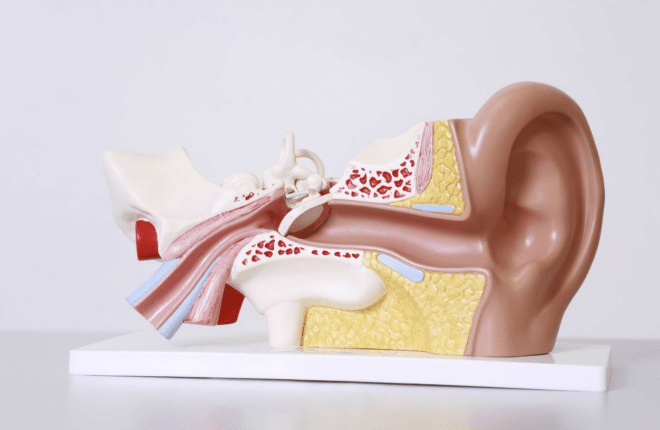How Does an Audiologist Conduct a Hearing Test?
When the words around you start to blur into muffled sounds, it’s time to seek the expertise of an audiologist. These skilled hearing doctors map out your auditory health with precision by assessing your hearing in a specialized evaluation.
Having a certified audiologist test your hearing is a step closer to the world as it’s meant to be heard. But what exactly does this hearing health professional do, and how does a hearing test work? This article explores the precise and thoughtful process an audiologist follows during a hearing checkup and presents the intricate ways they assess and respond to your hearing health needs.
The Hearing Test Starts With a Conversation
The hearing test process starts long before you put on those headphones. It all begins with a chat about your medical background. Your audiologist will want to understand your health history, any hereditary factors, exposure to loud noises, and specific situations where you may have noticed hearing difficulties. This initial assessment is crucial in understanding the full context of your hearing issues.
The Physical Ear Check
Next, it’s time for a physical examination. This simple step often involves a visual inspection of your ear canal using an otoscope. The audiologist will check for any physical abnormalities, blockages, or signs of infection. Sometimes, what you can’t hear is rooted in a visible issue. Don’t worry – the physical assessment is non-invasive and completely painless.
Pure-Tone Audiometry – The Classic Hearing Test
The heart of any hearing evaluation is pure-tone audiometry. You’ve likely seen the setup – a soundproof booth, a set of headphones, and a button to press. This test measures your ability to hear sounds at various pitch levels, often using high and low frequencies that correspond to speech. By charting your responses on an audiogram, your audiologist can precisely diagnose the degree and nature of your hearing loss.
The Bone Conduction Test – A Closer Look Inside the Ear
Occasionally, the issue isn’t with the pathways to the ear but the structures inside. A bone conduction test bypasses the outer and middle ear, delivering sound directly to the inner ear. This helps the audiologist determine if your hearing loss is conductive (due to a problem in the ear canal or middle ear) or sensorineural (affecting the inner ear or auditory nerve) in nature.
Speech Testing
Hearing tones is one thing; understanding speech is another. Speech tests measure your ability to hear and comprehend speech in a variety of conditions, from quiet rooms to settings with background noise. This phase of testing provides insight into the real-world listening environments you may struggle with and helps the audiologist recommend appropriate interventions.
Advanced Hearing Evaluation Techniques
For complex cases, or when more data is necessary, audiologists also employ the following techniques alongside standard testing:
- Auditory Brainstem Response (ABR) – This neurologic test uses electrodes to observe the brain’s response to sounds, ideal for patients who can’t participate in standard audiometric tests.
- Otoacoustic Emissions (OAE) – This test involves playing sounds into the ear to evaluate the inner ear’s mechanical function and its ability to produce sound.
- Tympanometry – By varying air pressure in the ear canal, this test assesses the condition of the middle ear and mobility of the eardrum.
The Benefits of a Hearing Analysis
One of the greatest benefits of a hearing test is its power to detect issues before they become profound. Early detection allows for prompt intervention and management of any hearing loss, often preventing it from getting worse. Once your hearing needs are assessed, you and your audiologist can work together to create a treatment plan that suits your lifestyle. This could involve anything from medical intervention for certain types of hearing loss to the recommendation of hearing aids, assistive listening devices, or other hearing solutions.
The ultimate goal of a hearing test is to enhance your ability to engage with the world. By addressing hearing loss, you can improve communication, strengthen relationships, and enjoy a life filled with the beauty of sound.
Addressing Common Concerns About Hearing Tests
Is a Hearing Test Uncomfortable or Painful?
No, hearing tests should not cause discomfort. They may be slightly inconvenient due to the time required, but the tests are typically painless and often quite simple for the patient.
Does a Hearing Test Require Preparation?
There’s little you need to do to prepare for a hearing test. It’s best to come well-rested and not under the influence of any substances that could alter your sense of alertness.
Are Hearing Tests Covered by Insurance?
Many health insurance plans cover the cost of hearing tests, particularly when they are deemed medically necessary. Consult your provider to understand your specific coverage.
What If I’m Diagnosed with Hearing Loss?
A diagnosis of hearing loss can be overwhelming, but it’s the first step toward regaining control. It’s not just about the diagnosis; it’s about what comes next—a customized plan to amplify your hearing experience and renew your connection to the sounds that matter most.
How Often Should I Get a Hearing Test?
Like most health evaluations, the frequency of hearing tests depends on age, exposure to loud noises, and medical history. As a general rule of thumb, adults should get their hearing checked every three years. If you suspect a problem, don’t wait.
Audiologists at the Forefront of Hearing Healthcare
Audiologists are specialists in the diagnosis and treatment of hearing and balance disorders. They play a critical role in our healthcare system by helping individuals of all ages address their hearing concerns. By understanding the hearing test process, you’ll know what to expect and gain insight into the care and precision audiologists provide during your visit.
Make your hearing health a priority and take the first step towards sound clarity and enhanced quality of life. Book your comprehensive hearing test with our certified audiologists at Darr Hearing today and let us assist you in your path to better hearing.



